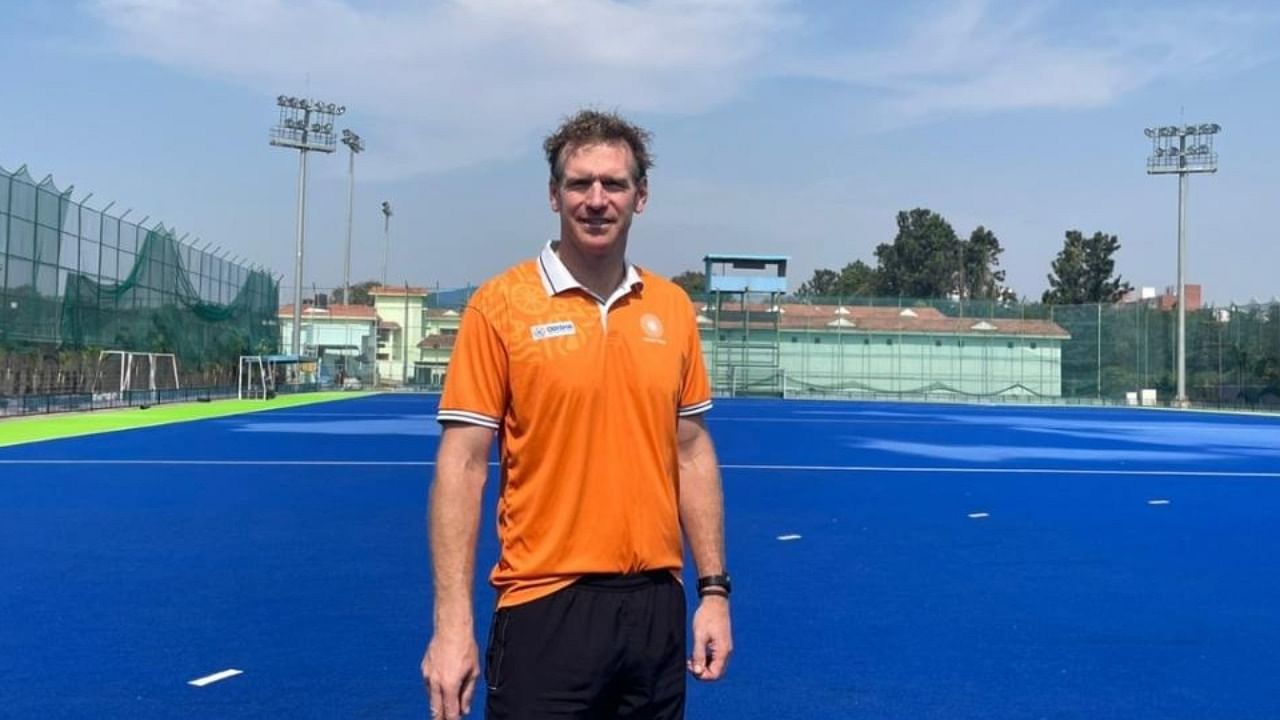
It was way back in 1975 that India won the hockey World Cup for the first and last time.
Looking to add to that glory are the current Indian team who are in the last leg of an intense training programme ahead of the big event starting from January 13-29 in Bhubaneswar and Rourkela.
For this, a week-long specialised drag-flick and goalkeeping camp was held at the SAI Centre here and at the helm of it was drag-flick expert Bram Lomans, two-time Olympic gold medallist and World Cup winner, of Netherlands.
He spoke to DH about the art of drag-flicking, the camp and India’s chances at the World Cup.
What did you focus on during the camp?
There were nine players from 33 probables for the senior squad and four from the under-21 Indian team involved in the camp. We worked on the basics and made a few tweaks. In general, we were looking to add a bit more pace to the penalty corners and figure out the combination of players to deal with different variations in the department.
Takeaways from your week-long stint?
I’m quite impressed with the width of the penalty corner-takers. I don’t think there are many countries who can deliver nine players to a training week, because no country has that many good flickers. That was a positive surprise. The quality of the four juniors is pretty high too. The boys are extremely fit, professional and always eager to learn.
What is the importance of a drag-flicker in building a strong team in modern hockey?
When a team is good at penalty corner (PC) attacking then the opponents refrain from defending aggressively in the circle to avoid making fouls. Strong PC’s lead to more chances for scoring field goals because the defence line is cautious. If not, the defenders go all out because they aren’t scared of conceding goals through PC’s. These dynamics dictate the momentum and ultimately the result of a game.
Experts believe that the conversion rate of the PC’s have dropped in recent times. Do you agree with this observation?
I can’t fully agree with this because in big games like the Olympic finals or world cup finals most matches were won by penalty corner conversions.
I think the numbers had dropped a bit but went back up again. These days hockey is a game between defence and offence. I think defenders got a bit stronger as they ran better and incorporated techniques to stop the ball better. But also, when that happens the PC takers are redeveloping themselves to find solutions to score.
When so much emphasis is given on PC attackers in every top team in the world, how important does the role of a PC defender become?
Very important. A good corner defence is almost as important as a corner attack. We had a few sessions specifically for corner defence. The goal-keepers also trained hard for the PC’s. Mostly, the PC attackers, defenders and keeper’s trained together so everybody gets used to the different styles of PC’s.
You were part of the WC-winning team in 1998 when Netherlands hosted the event. What are the positives and negatives of playing as a host team?
The biggest advantage is good knowledge of the conditions such as the climate and pitches. When you travel to play big events in a different country, sometimes all these minor things such as adjusting to the food, travel time between the hotel and stadium, behaviour of the outfield when it's too dry/ wet or different times of the day affect a player’s performance.
The Indian side doesn’t have to worry about the little things and can just walk into a pitch and focus on playing hockey.
But the double-edged sword will be playing in front of the home crowd. They can be extremely positive when India is behind. But also, the cheering can lead players to get excited which can cause silly mistakes in the decisive moments when the team needs to stay calm.
India’s chances at the world cup?
India has all the ingredients to become the world champions. But there is Australia, defending champs Belgium, the Netherlands, Argentina and Germany with the right mix as well. Handling the pressure will be key and a little bit of luck for the home side can do wonders for them.